Searched: Religious
News
 Faith-based organizations and advocacy groups are slamming the Biden administration for re-interpreting the definition of “sex” found in Section 1557 of the Affordable Care Act to include “sexual orientation” and “gender identity.” Faith-based organizations and advocacy groups are slamming the Biden administration for re-interpreting the definition of “sex” found in Section 1557 of the Affordable Care Act to include “sexual orientation” and “gender identity.” |
A professor explains why examining a school's doctrinal statement isn't enough.
 When I speak at churches around the country, the conversation after my talks often turns to the state of Christian higher education. I’m a professor at a Christian institution, and Christian parents and grandparents want to know where high school graduates can go to have their faith deepened rather than undermined. These concerns have only become more pressing given the ongoing rise in young people wandering away from the church and describing their religious convictions as “nothing in particular.”The question many Christians have for me is which colleges are “safe” or “real” Christian schools, which usually means those that have a truly conservative theological ethos. For those who aren’t familiar with the world of Christian higher ed, it can be difficult to identify these schools from outside the campus community, and parents often (reasonably) conclude an institution’s stance on human sexuality is the simplest indicator of a college’s commitment to Christian orthodoxy.LGBTQ questions are indeed important, and they can serve as a proxy for an institution’s broader theology. But by itself, this isn’t a reliable formula for finding a good Christian college. A school may stake out a bold position on sexuality and yet capitulate to what I’d suggest is the most overlooked and therefore most insidious threat to Christian education in America right now.It’s not progressive theology. It’s a pervasive consumerist anthropology.Theological anthropology concerns our assumptions about the nature and purpose of humanity. And by “consumerist anthropology” I mean the belief—often subconsciously held—that ...Continue reading... When I speak at churches around the country, the conversation after my talks often turns to the state of Christian higher education. I’m a professor at a Christian institution, and Christian parents and grandparents want to know where high school graduates can go to have their faith deepened rather than undermined. These concerns have only become more pressing given the ongoing rise in young people wandering away from the church and describing their religious convictions as “nothing in particular.”The question many Christians have for me is which colleges are “safe” or “real” Christian schools, which usually means those that have a truly conservative theological ethos. For those who aren’t familiar with the world of Christian higher ed, it can be difficult to identify these schools from outside the campus community, and parents often (reasonably) conclude an institution’s stance on human sexuality is the simplest indicator of a college’s commitment to Christian orthodoxy.LGBTQ questions are indeed important, and they can serve as a proxy for an institution’s broader theology. But by itself, this isn’t a reliable formula for finding a good Christian college. A school may stake out a bold position on sexuality and yet capitulate to what I’d suggest is the most overlooked and therefore most insidious threat to Christian education in America right now.It’s not progressive theology. It’s a pervasive consumerist anthropology.Theological anthropology concerns our assumptions about the nature and purpose of humanity. And by “consumerist anthropology” I mean the belief—often subconsciously held—that ...Continue reading... |
As the presidential election approaches, the incumbent government seeks to win support with aid to churches and pastors.
 In many countries, politicians try to win over religious voters by highlighting areas of shared interest between their agenda and the faithful’s priorities. In Venezuela, candidates are offering pastors cash.With less than three months until Venezuela’s presidential elections, incumbent Nicolás Maduro is expanding two initiatives specifically aimed at the evangelical community, which represents 30.9 percent of the country’s population.Bono El Buen Pastor (“The Good Shepherd Bonus”), created last year, and Plan Mi Iglesia Bien Equipada (“My Well-Equipped Church Plan”) offer resources to pastors and their churches, including cash, chairs, construction materials, and expensive sound equipment—no strings attached. Mi Iglesia Bien Equipada exists under Misión Venezuela Bella, a government program that invests in recreation and arts spaces, which has remodeled nearly 3,000 churches since 2019.At the beginning of March, Maduro gathered 17,000 people in a pastors-only event in the northern city of Carabobo and announced that 20,000 additional pastors had become beneficiaries of the Bono El Buen Pastor program, which would deliver a monthly stipend of 495 bolivars (around $14 USD) to each new member. (Venezuela’s minimum legal monthly wage is 130 bolivars or $3.50.)Officially, the government says the program aims to give churchgoers dignified spaces where they can develop their faith. There are, however, those who view the state’s generosity with some suspicion.César Mermejo, president of the Evangelical Council of Venezuela and a leader of the Federación de Iglesias Mizpa de Venezuela, called these efforts by Maduro an attempt to buy the souls ...Continue reading... In many countries, politicians try to win over religious voters by highlighting areas of shared interest between their agenda and the faithful’s priorities. In Venezuela, candidates are offering pastors cash.With less than three months until Venezuela’s presidential elections, incumbent Nicolás Maduro is expanding two initiatives specifically aimed at the evangelical community, which represents 30.9 percent of the country’s population.Bono El Buen Pastor (“The Good Shepherd Bonus”), created last year, and Plan Mi Iglesia Bien Equipada (“My Well-Equipped Church Plan”) offer resources to pastors and their churches, including cash, chairs, construction materials, and expensive sound equipment—no strings attached. Mi Iglesia Bien Equipada exists under Misión Venezuela Bella, a government program that invests in recreation and arts spaces, which has remodeled nearly 3,000 churches since 2019.At the beginning of March, Maduro gathered 17,000 people in a pastors-only event in the northern city of Carabobo and announced that 20,000 additional pastors had become beneficiaries of the Bono El Buen Pastor program, which would deliver a monthly stipend of 495 bolivars (around $14 USD) to each new member. (Venezuela’s minimum legal monthly wage is 130 bolivars or $3.50.)Officially, the government says the program aims to give churchgoers dignified spaces where they can develop their faith. There are, however, those who view the state’s generosity with some suspicion.César Mermejo, president of the Evangelical Council of Venezuela and a leader of the Federación de Iglesias Mizpa de Venezuela, called these efforts by Maduro an attempt to buy the souls ...Continue reading... |
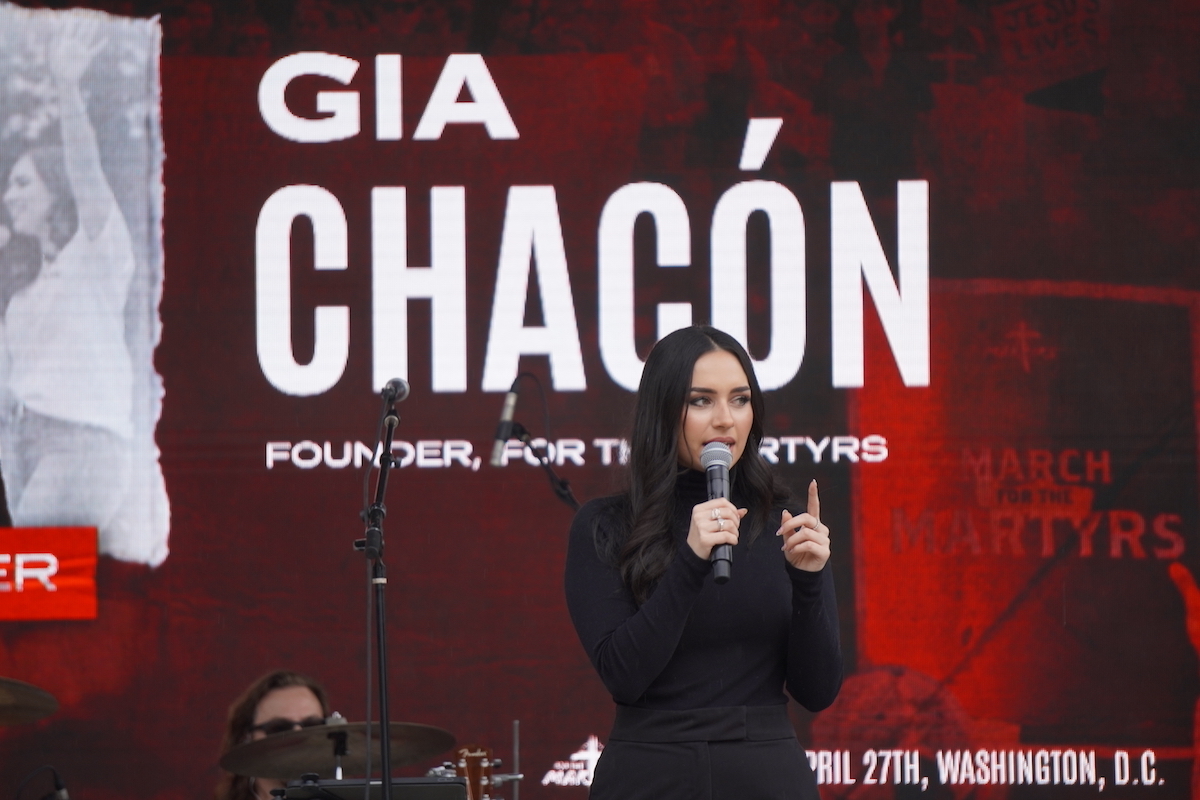 Religious freedom activists urged Americans to learn from Christians who live in countries where they face persecution or death for their faith and develop a willingness to “follow Jesus no matter the cost.”? Religious freedom activists urged Americans to learn from Christians who live in countries where they face persecution or death for their faith and develop a willingness to “follow Jesus no matter the cost.”? |
As the presidential election approaches, the incumbent government seeks to win support with aid to churches and pastors.
 In many countries, politicians try to win over religious voters by highlighting areas of shared interest between their agenda and the faithful’s priorities. In Venezuela, candidates are offering pastors cash.With less than three months until Venezuela’s presidential elections, incumbent Nicolás Maduro is expanding two initiatives specifically aimed at the evangelical community, which represents 30.9 percent of the country’s population.Bono El Buen Pastor (“The Good Shepherd Bonus”), created last year, and Plan Mi Iglesia Bien Equipada (“My Well-Equipped Church Plan”) offer resources to pastors and their churches, including cash, chairs, construction materials, and expensive sound equipment—no strings attached. Mi Iglesia Bien Equipada exists under Misión Venezuela Bella, a government program that invests in recreation and arts spaces, which has remodeled nearly 3,000 churches since 2019.At the beginning of March, Maduro gathered 17,000 people in a pastors-only event in the northern city of Carabobo and announced that 20,000 additional pastors had become beneficiaries of the Bono El Buen Pastor program, which would deliver a monthly stipend of 495 bolivars (around $14 USD) to each new member. (Venezuela’s minimum legal monthly wage is 130 bolivars or $3.50.)Officially, the government says the program aims to give churchgoers dignified spaces where they can develop their faith. There are, however, those who view the state’s generosity with some suspicion.César Mermejo, president of the Evangelical Council of Venezuela and a leader of the Federación de Iglesias Mizpa de Venezuela, called these efforts by Maduro an attempt to buy the souls ...Continue reading... In many countries, politicians try to win over religious voters by highlighting areas of shared interest between their agenda and the faithful’s priorities. In Venezuela, candidates are offering pastors cash.With less than three months until Venezuela’s presidential elections, incumbent Nicolás Maduro is expanding two initiatives specifically aimed at the evangelical community, which represents 30.9 percent of the country’s population.Bono El Buen Pastor (“The Good Shepherd Bonus”), created last year, and Plan Mi Iglesia Bien Equipada (“My Well-Equipped Church Plan”) offer resources to pastors and their churches, including cash, chairs, construction materials, and expensive sound equipment—no strings attached. Mi Iglesia Bien Equipada exists under Misión Venezuela Bella, a government program that invests in recreation and arts spaces, which has remodeled nearly 3,000 churches since 2019.At the beginning of March, Maduro gathered 17,000 people in a pastors-only event in the northern city of Carabobo and announced that 20,000 additional pastors had become beneficiaries of the Bono El Buen Pastor program, which would deliver a monthly stipend of 495 bolivars (around $14 USD) to each new member. (Venezuela’s minimum legal monthly wage is 130 bolivars or $3.50.)Officially, the government says the program aims to give churchgoers dignified spaces where they can develop their faith. There are, however, those who view the state’s generosity with some suspicion.César Mermejo, president of the Evangelical Council of Venezuela and a leader of the Federación de Iglesias Mizpa de Venezuela, called these efforts by Maduro an attempt to buy the souls ...Continue reading... |
As the presidential election approaches, the incumbent government seeks to win support with aid to churches and pastors.
 In many countries, politicians try to win over religious voters by highlighting areas of shared interest between their agenda and the faithful’s priorities. In Venezuela, candidates are offering pastors cash.With less than three months until Venezuela’s presidential elections, incumbent Nicolás Maduro is expanding two initiatives specifically aimed at the evangelical community, which represents 30.9 percent of the country’s population.Bono El Buen Pastor (“The Good Shepherd Bonus”), created last year, and Plan Mi Iglesia Bien Equipada (“My Well-Equipped Church Plan”) offer resources to pastors and their churches, including cash, chairs, construction materials, and expensive sound equipment—no strings attached. Mi Iglesia Bien Equipada exists under Misión Venezuela Bella, a government program that invests in recreation and arts spaces, which has remodeled nearly 3,000 churches since 2019.At the beginning of March, Maduro gathered 17,000 people in a pastors-only event in the northern city of Carabobo and announced that 20,000 additional pastors had become beneficiaries of the Bono El Buen Pastor program, which would deliver a monthly stipend of 495 bolivars (around $14 USD) to each new member. (Venezuela’s minimum legal monthly wage is 130 bolivars or $3.50.)Officially, the government says the program aims to give churchgoers dignified spaces where they can develop their faith. There are, however, those who view the state’s generosity with some suspicion.César Mermejo, president of the Evangelical Council of Venezuela and a leader of the Federación de Iglesias Mizpa de Venezuela, called these efforts by Maduro an attempt to buy the souls ...Continue reading... In many countries, politicians try to win over religious voters by highlighting areas of shared interest between their agenda and the faithful’s priorities. In Venezuela, candidates are offering pastors cash.With less than three months until Venezuela’s presidential elections, incumbent Nicolás Maduro is expanding two initiatives specifically aimed at the evangelical community, which represents 30.9 percent of the country’s population.Bono El Buen Pastor (“The Good Shepherd Bonus”), created last year, and Plan Mi Iglesia Bien Equipada (“My Well-Equipped Church Plan”) offer resources to pastors and their churches, including cash, chairs, construction materials, and expensive sound equipment—no strings attached. Mi Iglesia Bien Equipada exists under Misión Venezuela Bella, a government program that invests in recreation and arts spaces, which has remodeled nearly 3,000 churches since 2019.At the beginning of March, Maduro gathered 17,000 people in a pastors-only event in the northern city of Carabobo and announced that 20,000 additional pastors had become beneficiaries of the Bono El Buen Pastor program, which would deliver a monthly stipend of 495 bolivars (around $14 USD) to each new member. (Venezuela’s minimum legal monthly wage is 130 bolivars or $3.50.)Officially, the government says the program aims to give churchgoers dignified spaces where they can develop their faith. There are, however, those who view the state’s generosity with some suspicion.César Mermejo, president of the Evangelical Council of Venezuela and a leader of the Federación de Iglesias Mizpa de Venezuela, called these efforts by Maduro an attempt to buy the souls ...Continue reading... |
A late historian explores how crusade hymns told both the classic story of gospel salvation and the evolving story of evangelical worship music.
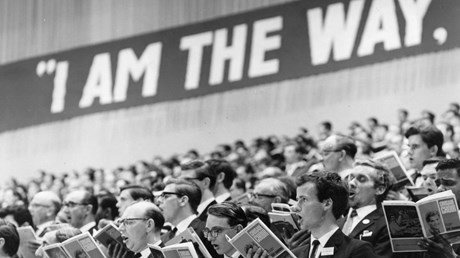 Crowds of over 50,000. Famous special guests. Hundreds of cities in the US and around the world. Beloved, catchy songs. For many, these might sound like readouts from the Taylor Swift Eras Tour hype machine. But exchange the glittery girl power for the gospel in baritone, and you have one of the most successful musical touring acts in the postwar world: the Billy Graham Crusades.The first association that “Billy Graham Crusade” may evoke is not musical at all, but rather a close-up shot of the evangelist, with his penetrating, wide-eyed gaze and raised forearms, thundering, “The Bible says …” Admittedly, music was not the main focus.Yet as the late historian Edith Blumhofer shows in her final book, Songs I Love to Sing: The Billy Graham Crusades and the Shaping of Modern Worship, neither Graham’s ministry nor the late-century rise of contemporary Christian music can be understood without it. As crusade song leader Cliff Barrows pursued his main goal—“sing to save”—he and his teammates bridged stylistic, cultural, and generational divides, transforming evangelicals’ music into the harmonic blend of old and new that is familiar today.Mining rich resourcesBefore unpacking this highly original book, a few words about the author. Blumhofer is an American religious historian renowned for her empathetic biographies of hymnist Fanny J. Crosby and evangelist Aimee Semple McPherson, as well as broader studies of evangelicalism and Pentecostalism. She concluded her career with this new study, sadly succumbing to a battle with cancer in the process.To finish the project, she tapped Jesus People expert Larry Eskridge, with whom she had for many years directed the Institute ...Continue reading... Crowds of over 50,000. Famous special guests. Hundreds of cities in the US and around the world. Beloved, catchy songs. For many, these might sound like readouts from the Taylor Swift Eras Tour hype machine. But exchange the glittery girl power for the gospel in baritone, and you have one of the most successful musical touring acts in the postwar world: the Billy Graham Crusades.The first association that “Billy Graham Crusade” may evoke is not musical at all, but rather a close-up shot of the evangelist, with his penetrating, wide-eyed gaze and raised forearms, thundering, “The Bible says …” Admittedly, music was not the main focus.Yet as the late historian Edith Blumhofer shows in her final book, Songs I Love to Sing: The Billy Graham Crusades and the Shaping of Modern Worship, neither Graham’s ministry nor the late-century rise of contemporary Christian music can be understood without it. As crusade song leader Cliff Barrows pursued his main goal—“sing to save”—he and his teammates bridged stylistic, cultural, and generational divides, transforming evangelicals’ music into the harmonic blend of old and new that is familiar today.Mining rich resourcesBefore unpacking this highly original book, a few words about the author. Blumhofer is an American religious historian renowned for her empathetic biographies of hymnist Fanny J. Crosby and evangelist Aimee Semple McPherson, as well as broader studies of evangelicalism and Pentecostalism. She concluded her career with this new study, sadly succumbing to a battle with cancer in the process.To finish the project, she tapped Jesus People expert Larry Eskridge, with whom she had for many years directed the Institute ...Continue reading... |
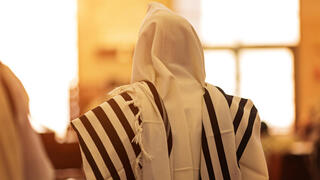 Dr. Peter Gross says he couldn't attend hearing in which his patient sued him for $4.1 million because it fell on Yom Kippur, forcing him to choose between his religious and civic duties Dr. Peter Gross says he couldn't attend hearing in which his patient sued him for $4.1 million because it fell on Yom Kippur, forcing him to choose between his religious and civic duties |
Do activists often invest their work with religious significance? All the more reason for Christians to be discerning co-laborers.
 I love nature documentaries, especially those narrated by David Attenborough. Whether watching with my children or on my own, I love seeing the majesty of the snowy Alps or kelp forests.But I’ve noticed that in recent years, nearly every somber vignette of a species struggling on the edge of survival ends with a call to action. Viewers are beckoned to take responsibility for causing a poor animal’s plight and to consider how they can fix things before the species is gone forever.I understand the impulse to believe that animals’ struggles should move humans to action. However, it is the ethics informing the narrator’s pleas that seem a bit muddled.By many documentarians’ admission, the species we marvel at on screen have emerged out of eons of struggles to survive and adapt to their surroundings. Sometimes, the narrators even remind us that this process has resulted in countless prior species disappearing into extinction.Whether you believe in a young or an old earth, in God’s hand or in meaningless physical forces guiding history, we can all agree that change, death, and selection favoring adaptability are features of life on earth. Witnessing it in real time makes for compelling television drama, but the moral indictment that you and I contribute to grave evil when one of these species goes extinct does not seem to square with the documentarians’ worldview.What compels us to see polar bears possibly going extinct in terms of moral right and wrong? If we take human action out of the equation, isn’t history littered with the bones of countless species that have gone extinct? Are not humans and their actions part of nature?A robust theology of creation careIf we listen closely, ...Continue reading... I love nature documentaries, especially those narrated by David Attenborough. Whether watching with my children or on my own, I love seeing the majesty of the snowy Alps or kelp forests.But I’ve noticed that in recent years, nearly every somber vignette of a species struggling on the edge of survival ends with a call to action. Viewers are beckoned to take responsibility for causing a poor animal’s plight and to consider how they can fix things before the species is gone forever.I understand the impulse to believe that animals’ struggles should move humans to action. However, it is the ethics informing the narrator’s pleas that seem a bit muddled.By many documentarians’ admission, the species we marvel at on screen have emerged out of eons of struggles to survive and adapt to their surroundings. Sometimes, the narrators even remind us that this process has resulted in countless prior species disappearing into extinction.Whether you believe in a young or an old earth, in God’s hand or in meaningless physical forces guiding history, we can all agree that change, death, and selection favoring adaptability are features of life on earth. Witnessing it in real time makes for compelling television drama, but the moral indictment that you and I contribute to grave evil when one of these species goes extinct does not seem to square with the documentarians’ worldview.What compels us to see polar bears possibly going extinct in terms of moral right and wrong? If we take human action out of the equation, isn’t history littered with the bones of countless species that have gone extinct? Are not humans and their actions part of nature?A robust theology of creation careIf we listen closely, ...Continue reading... |
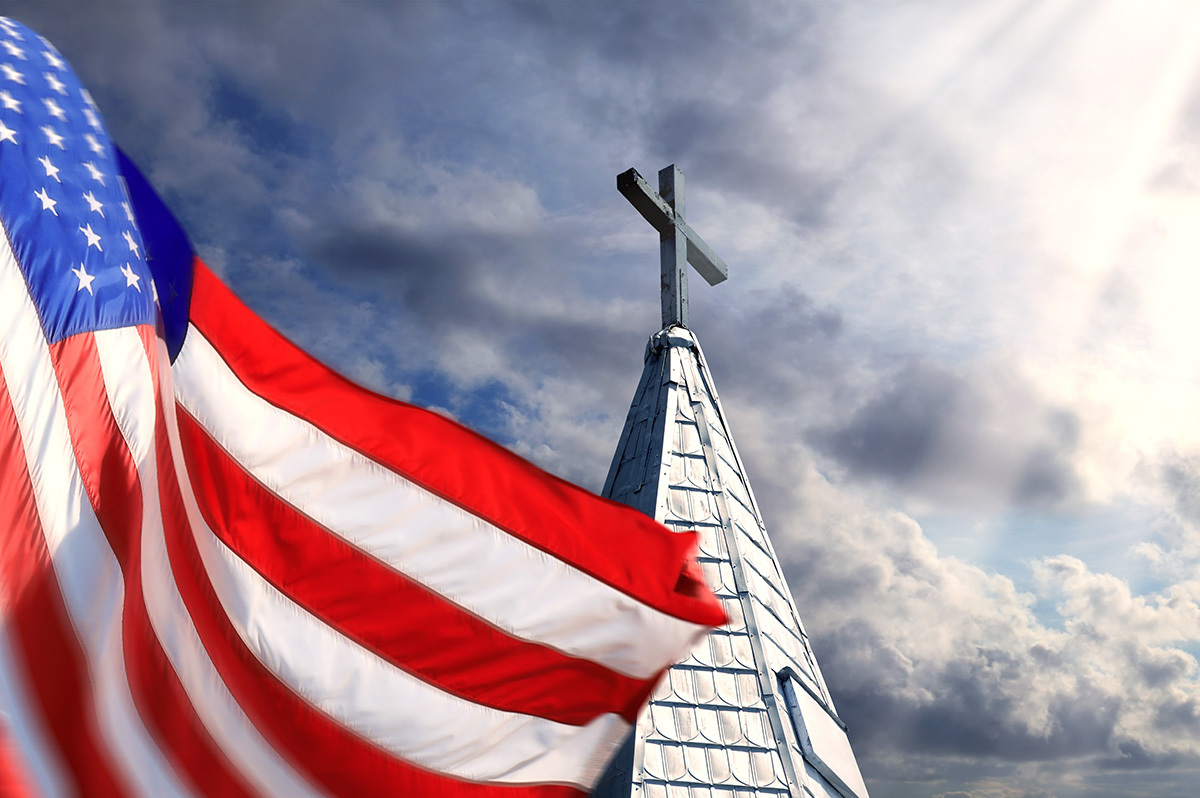 Southern Baptists, while generally conservative in their political ideology, maintain a firm commitment to religious liberty for all Americans and support a government that does not favor any specific religion, according to a Lifeway Research study. Southern Baptists, while generally conservative in their political ideology, maintain a firm commitment to religious liberty for all Americans and support a government that does not favor any specific religion, according to a Lifeway Research study. |
Today is Earth Day. For some, this is a day to remind others to plant trees, reduce pollution, or clean up trash. But for many this is almost a religious day.
|
The world is realizing anew that our faith has tangible benefits. This is an opportunity for the gospel.
 As Christianity continues to decline in the West, the broader world has begun to notice something’s missing. There seems to be a growing awareness that—for all the scandals and failings of the church—the loss of a Christian culture leaves us all worse off, and that there are benefits to being a Christian and to living in a Christian society.For example, Derek Thompson recently wrote in The Atlantic about the loss of community that comes with declining church attendance. “Maybe religion, for all of its faults, works a bit like a retaining wall,” he concluded, “hold[ing] back the destabilizing pressure of American hyper-individualism, which threatens to swell and spill over in its absence.”Likewise, Harvard scholar Tyler J. VanderWeele has extensively researched the benefits of participation in religious services, finding that it leads to improved mental and physical health, happiness, and sense of meaning. Statistically, going to church regularly will help you flourish as a human being. As Brad Wilcox, a professor at the University of Virginia, has shown, regular church attendance even correlates with a more satisfying sex life!And then you have those like former atheist Ayaan Hirsi Ali who explain their conversion to Christianity at least partly as a response to the decay of the contemporary world, a world threatened by “woke ideology,” “global Islam,” and authoritarianism. “The only credible answer, I believe, lies in our desire to uphold the legacy of the Judeo-Christian tradition,” Hirsi Ali said in an essay announcing her new faith. Famous atheist Richard Dawkins objected to Hirsi Ali’s conversion yet seems to ...Continue reading... As Christianity continues to decline in the West, the broader world has begun to notice something’s missing. There seems to be a growing awareness that—for all the scandals and failings of the church—the loss of a Christian culture leaves us all worse off, and that there are benefits to being a Christian and to living in a Christian society.For example, Derek Thompson recently wrote in The Atlantic about the loss of community that comes with declining church attendance. “Maybe religion, for all of its faults, works a bit like a retaining wall,” he concluded, “hold[ing] back the destabilizing pressure of American hyper-individualism, which threatens to swell and spill over in its absence.”Likewise, Harvard scholar Tyler J. VanderWeele has extensively researched the benefits of participation in religious services, finding that it leads to improved mental and physical health, happiness, and sense of meaning. Statistically, going to church regularly will help you flourish as a human being. As Brad Wilcox, a professor at the University of Virginia, has shown, regular church attendance even correlates with a more satisfying sex life!And then you have those like former atheist Ayaan Hirsi Ali who explain their conversion to Christianity at least partly as a response to the decay of the contemporary world, a world threatened by “woke ideology,” “global Islam,” and authoritarianism. “The only credible answer, I believe, lies in our desire to uphold the legacy of the Judeo-Christian tradition,” Hirsi Ali said in an essay announcing her new faith. Famous atheist Richard Dawkins objected to Hirsi Ali’s conversion yet seems to ...Continue reading... |
 Youth ministry experts have emphasized the crucial role intergenerational relationships play in keeping young people in the Church and connected to their faith amid a soaring rise in religious nones across the United States. Youth ministry experts have emphasized the crucial role intergenerational relationships play in keeping young people in the Church and connected to their faith amid a soaring rise in religious nones across the United States. |
 Jews thrived in Egypt for over 2,500 years; after Israel's creation and ensuing wars, they faced severe persecution, with many expelled, until almost none were left; archival photos showcase a cultural tapestry of traditional attire and sports enmeshed with religious education Jews thrived in Egypt for over 2,500 years; after Israel's creation and ensuing wars, they faced severe persecution, with many expelled, until almost none were left; archival photos showcase a cultural tapestry of traditional attire and sports enmeshed with religious education |
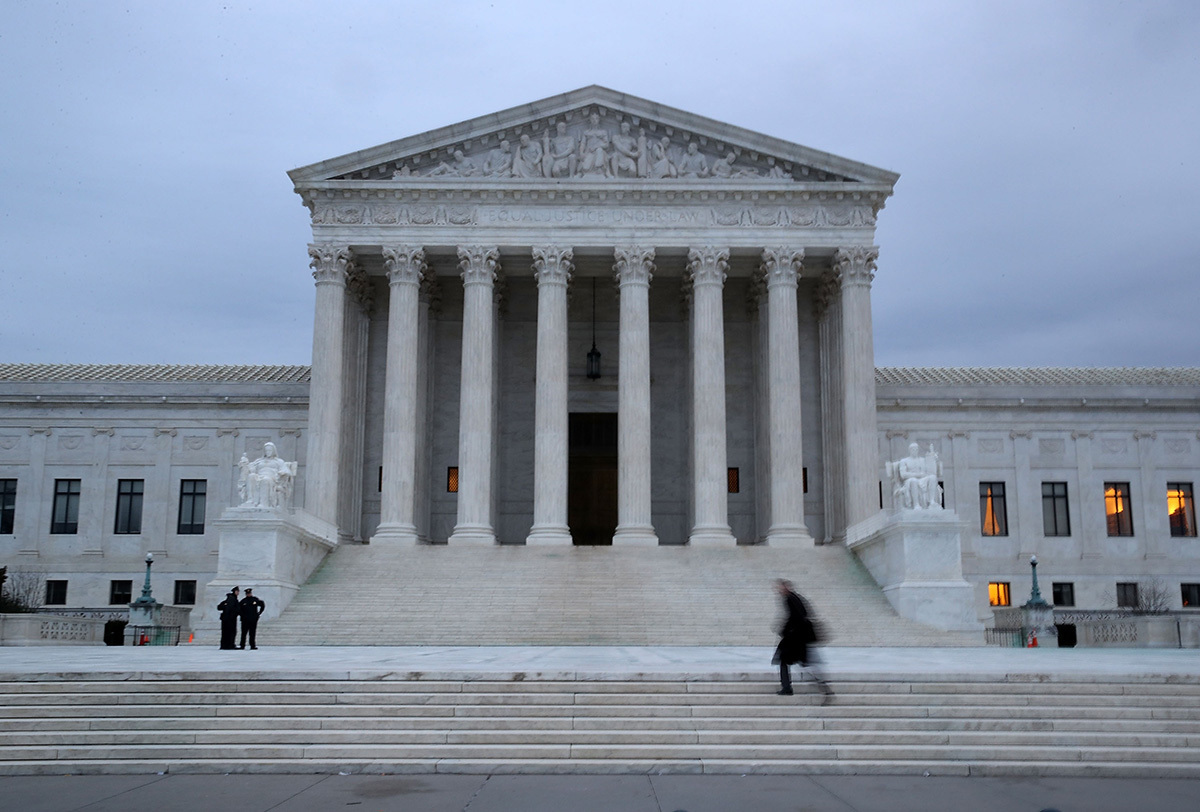 As the U.S. Supreme Court hears a case involving a city's ban on homeless camping on public property, a religious liberty law firm is urging the court to overturn a federal appeals court decision that excluded faith-based homeless shelters when counting available beds. As the U.S. Supreme Court hears a case involving a city's ban on homeless camping on public property, a religious liberty law firm is urging the court to overturn a federal appeals court decision that excluded faith-based homeless shelters when counting available beds. |
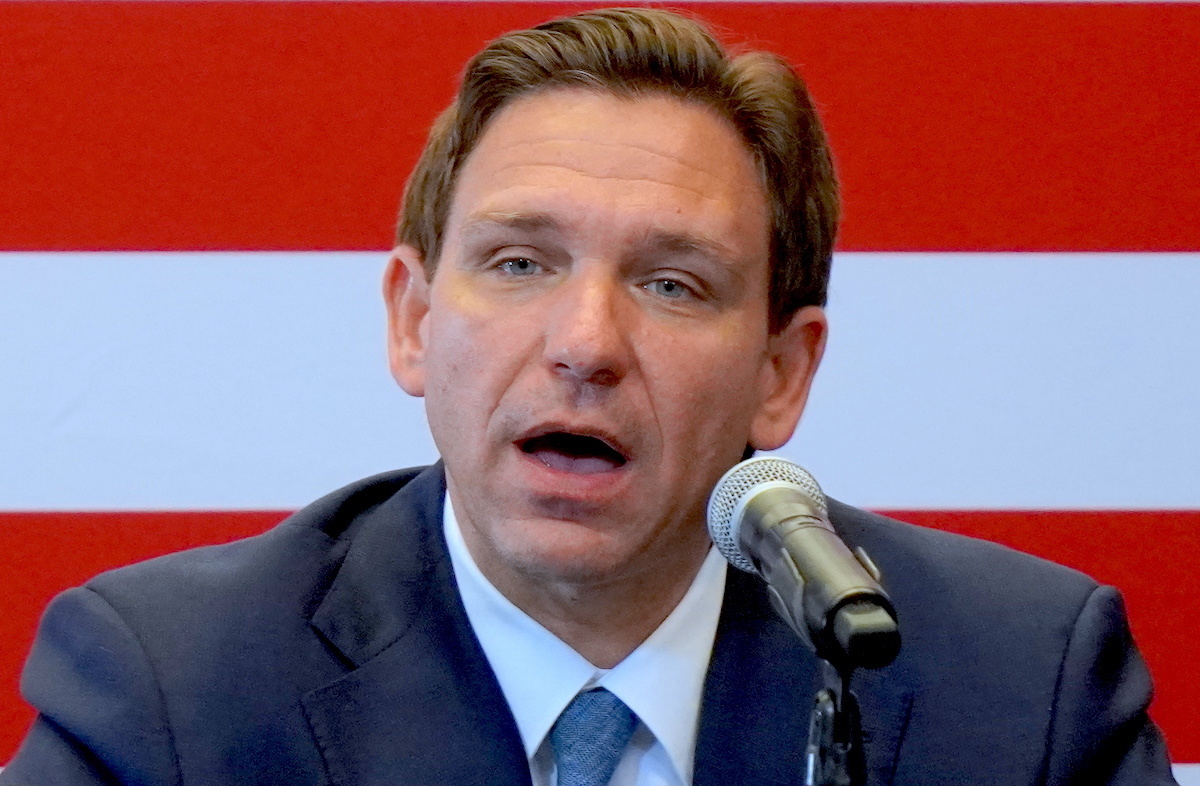 The co-founder of The Satanic Temple has challenged Florida Gov. Ron DeSantis to a debate on religious freedom in America after the governor said this week that Satanists couldn't be part of a recently approved chaplains program for public schools.? The co-founder of The Satanic Temple has challenged Florida Gov. Ron DeSantis to a debate on religious freedom in America after the governor said this week that Satanists couldn't be part of a recently approved chaplains program for public schools.? |
Today is Earth Day. For some, this is a day to remind others to plant trees, reduce pollution, or clean up trash. But for many this is almost a religious day.
|
Studies find that while less than a third of Americans trust church leaders, 90 percent of Filipinos do.
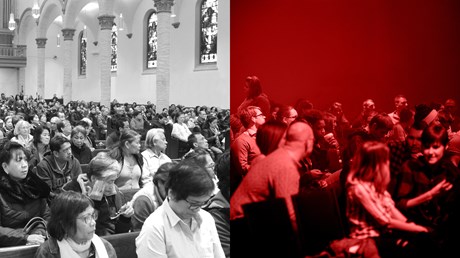 While less than a third of Americans rate clergy as highly honest and ethical, across the globe in the Philippines, 91 percent of the public trusts religious leaders, according to EON Group’s 2021 Philippine Trust Index. Respondents of the survey ranked pastors as the most trusted leaders in Filipino society, compared to a Gallup poll that found clergy in the US ranked lower than 10 other professions, including chiropractors and police officers.“When people outside of church find out I’m a pastor, their demeanor changes out of respect,” said Aldrin Peñamora, director of the Philippine Council of Evangelical Churches’ Justice, Peace, and Reconciliation Commission. Some people even ask him for prayer.The disconnect is rooted in cultural differences, religion’s role in society, as well as the impact of church scandals. Still, pastors from both countries noted the importance of having pastors engage with their congregations and local communities to build trust.Drivers of trust in the Filipino churchIn the Philippines, Catholics make up 80 percent of the population, while evangelicals make up about 3 percent. Catholicism came to the Philippines through Spanish colonialism and stuck as Filipinos made their faith their own. Today, the Catholic faith has become a cultural attribute of Filipino life.The high view of church leaders also reflects traditional Filipino values, said Peñamora: “Filipino culture values respecting the elderly, which spills over to their submission to people in authority, including religious authority.”In the Philippines, older people are considered wise, and they provide a sense of order and direction to the life of the community, Peñamora ...Continue reading... While less than a third of Americans rate clergy as highly honest and ethical, across the globe in the Philippines, 91 percent of the public trusts religious leaders, according to EON Group’s 2021 Philippine Trust Index. Respondents of the survey ranked pastors as the most trusted leaders in Filipino society, compared to a Gallup poll that found clergy in the US ranked lower than 10 other professions, including chiropractors and police officers.“When people outside of church find out I’m a pastor, their demeanor changes out of respect,” said Aldrin Peñamora, director of the Philippine Council of Evangelical Churches’ Justice, Peace, and Reconciliation Commission. Some people even ask him for prayer.The disconnect is rooted in cultural differences, religion’s role in society, as well as the impact of church scandals. Still, pastors from both countries noted the importance of having pastors engage with their congregations and local communities to build trust.Drivers of trust in the Filipino churchIn the Philippines, Catholics make up 80 percent of the population, while evangelicals make up about 3 percent. Catholicism came to the Philippines through Spanish colonialism and stuck as Filipinos made their faith their own. Today, the Catholic faith has become a cultural attribute of Filipino life.The high view of church leaders also reflects traditional Filipino values, said Peñamora: “Filipino culture values respecting the elderly, which spills over to their submission to people in authority, including religious authority.”In the Philippines, older people are considered wise, and they provide a sense of order and direction to the life of the community, Peñamora ...Continue reading... |
The popular kids series reminds parents that playfulness is next to godliness.
 When my oldest daughter, Elaine, was four, I watched her chase a soap bubble around the yard, utterly spellbound, and it struck me as a tiny window into how God must have felt as he watched Adam and Eve encounter each of the animals in Eden. Likewise, when I discovered that my youngest, Olivia, had held a full conversation with me while cutting our kitten’s whiskers under the table, I felt attuned with God’s anger when he flung his judgments at Israel through the prophets.These kinds of moments, and a thousand others, make raising kids and building a family spiritually illuminating tasks—especially when they ask theologically stimulating questions like “Does Jesus wear undies?” And although the creators of Bluey, an Emmy-awarded animated kids series, seem to have no overtly religious leanings, the show unexpectedly taps into unseen realities.If you haven’t yet discovered Bluey, let me catch you up. The series, streaming on Disney+, centers around a family of Australian blue heelers: six-year-old Bluey, her younger sister Bingo, Mum (Chilli), and Dad (Bandit). Each episode is less than 10 minutes long and targets a preschool audience—but the popular show draws all ages, and, in 2023, was the second-most acquired streaming program with 43.9 billion minutes consumed.When the producers announced that a longer episode was slated for season 3, the public grew panicked that the show may be ending (thankfully, it’s not!), revealing just how deeply the series meets a need in our culture—and I think it’s worth exploring why.The Heelers are just your average Australian family, with no superpowers or high-stakes problems to solve. But through their ...Continue reading... When my oldest daughter, Elaine, was four, I watched her chase a soap bubble around the yard, utterly spellbound, and it struck me as a tiny window into how God must have felt as he watched Adam and Eve encounter each of the animals in Eden. Likewise, when I discovered that my youngest, Olivia, had held a full conversation with me while cutting our kitten’s whiskers under the table, I felt attuned with God’s anger when he flung his judgments at Israel through the prophets.These kinds of moments, and a thousand others, make raising kids and building a family spiritually illuminating tasks—especially when they ask theologically stimulating questions like “Does Jesus wear undies?” And although the creators of Bluey, an Emmy-awarded animated kids series, seem to have no overtly religious leanings, the show unexpectedly taps into unseen realities.If you haven’t yet discovered Bluey, let me catch you up. The series, streaming on Disney+, centers around a family of Australian blue heelers: six-year-old Bluey, her younger sister Bingo, Mum (Chilli), and Dad (Bandit). Each episode is less than 10 minutes long and targets a preschool audience—but the popular show draws all ages, and, in 2023, was the second-most acquired streaming program with 43.9 billion minutes consumed.When the producers announced that a longer episode was slated for season 3, the public grew panicked that the show may be ending (thankfully, it’s not!), revealing just how deeply the series meets a need in our culture—and I think it’s worth exploring why.The Heelers are just your average Australian family, with no superpowers or high-stakes problems to solve. But through their ...Continue reading... |
? Temple Baptist Church - 4-21-20241 Corinthians 15:58Introduction:? A.? The Corinthian Church was a carnal (fleshly) church and spent both their time and resources upon their natural, temporal desires.? Paul loved this carnal, worldly church as it is the only one that Paul expressed his love for.? 1 Corinthians 16:23-24? The grace of our Lord Jesus Christ be with you.? (24)? My love be with you all in Christ Jesus. Amen.? B.? Chapter 15: 1-49, Paul speaks of their great salvation through the gospel.? Verses 50-57, the victory that has been won as one day all the church of God will be at home.? C.? The Holy Ghost admonishes the church to be heavenly minded in verse 58 because the real treasures are those that are eternal, not temporal.? The therefore ties this verse to the preceding verses and is a summation or conclusion.? His plea is based upon our blessed position in the body of Christ, the hope of His soon return in the rapture, and our eternal change.? ? D.? “My” denotes ownership.? “Beloved” denotes our dearness to both the Apostle and our Saviour.? “Brethren” denotes a family relationship which is important because our dependence is not only upon the Saviour but also upon each other!? 1.? Steadfastness – deals with the possibility of quitting - Galatians 6:9? And let us not be weary in well doing: for in due season we shall reap, if we faint not.? (People are quitting on every hand.? Pastors, missionaries, evangelists, SS teachers, soul winners, church workers, etc.)? 2.? Immovability – deals with the possibility of being swayed - 2 Thessalonians 2:15? Therefore, brethren, stand fast, and hold the traditions which ye have been taught, whether by word, or our epistle.? (We are in the midst of the “falling away.”)? 3.? Abounding – deals with possibility of sitting down instead of serving - 2 Corinthians 9:8? And God [is] able to make all grace abound toward you; that ye, always having all sufficiency in all [things], may abound to every good work.? (The closer to the end of the church age, the more we should labor.? Unfortunately, it is just the exact opposite is true.)? 4.? Knowledge – deals with the understanding that our labor is not in vain - Matthew 10:40-42? He that receiveth you receiveth me, and he that receiveth me receiveth him that sent me.? He that receiveth a prophet in the name of a prophet shall receive a prophet's reward; and he that receiveth a righteous man in the name of a righteous man shall receive a righteous man's reward.? And whosoever shall give to drink unto one of these little ones a cup of cold water only in the name of a disciple, verily I say unto you, he shall in no wise lose his reward. (Though we are in the gleanings stage or the Days of Noe, God is still in control of the harvest)? 5.? Reward – God will certainly reward us with fullness - 2 John 1:8? Look to yourselves, that we lose not those things which we have wrought, but that we receive a full reward. (full reward) for our labors (Parable of those who labored through the heat of the day for a penny while others entered the fields much later and received the same.)? ALL OF THIS IS GOING TO TAKE TWO THINGS:? 1.? It Takes A Real Conversion – 1 John 2:19? They went out from us, but they were not of us; for if they had been of us, they would no doubt have continued with us: but they went out, that they might be made manifest that they were not all of us.? 2.? It Takes A Real Conviction – Jesus is coming again just like He said!? SOME THINGS WE NEED TO CONTINUE IN:? 1.? We Need To continue In One Accord? Acts 1:14? These all continued with one accord in prayer and supplication, with the women, and Mary the mother of Jesus, and with his brethren.? 2.? We Need To Continue In Prayer? Acts 1:14? These all continued with one accord in prayer and supplication, with the women, and Mary the mother of Jesus, and with his brethren.? Colossians 4:2? Continue in prayer, and watch in the same with thanksgiving;? 3.? We Need To Continue In Doctrine? Acts 2:42? And they continued stedfastly in the apostles' doctrine and fellowship, and in breaking of bread, and in prayers.? 1 Timothy 4:16? Take heed unto thyself, and unto the doctrine; continue in them: for in doing this thou shalt both save thyself, and them that hear thee.? 2 Timothy 3:14? But continue thou in the things which thou hast learned and hast been assured of, knowing of whom thou hast earned them? 4.? We Need To Continue In Fellowship? ? ? ? ? ? ? ? ? ? ? ? ? ? ? Acts 2:42? And they continued stedfastly in the apostles' doctrine and fellowship, and in breaking of bread, and in prayers.? 5.? We Need To Continue In The Grace of God? (Salvation's Message)? Acts 13:43? Now when the congregation was broken up, many of the Jews and religious proselytes followed Paul and Barnabas: who, speaking to them, persuaded them to continue in the grace of God.? 6.? We Need To Continue In Encouragement? Acts 14:22? Confirming the souls of the disciples, and exhorting them to continue in the faith, and that we must through much tribulation enter into the kingdom of God.? 7.? We Need To Continue In Soul Winning (Both at home and abroad)? ? ? ? ? ? ? ? ? ? ? ? ? ? ? ? ? ? ? ? ? ? ? ? ? ? ? ? ? ? ? ? ? ? ? ? ? ? ? ? ? ? ? ? ? ? ? ? ? ? ? ? ? ? ? ? ? ? ? ? ? ? ? ? ? ? ? ? ? ? ? ? ? ? ? ? ? ? ? ? ? ? ? ? ? ? ? ? ? ? ? ? ? ? ? ? ? ? ? ? ? ? ? ? ? ? ? ? ? ? ? ? ? ? ? ? Acts 26:22? Having therefore obtained help of God, I continue unto this day, witnessing both to small and great? 8.? We Need To Continue To Live Godly? Romans 11:22? Behold therefore the goodness and severity of God: on them which fell, severity; but toward thee, goodness, if thou continue in his goodness: otherwise thou also shalt be cut off.? 9.? We Need To Continue Contending For The Faith? Galatians 2:5? To whom we gave place by subjection, no, not for an hour; that the truth of the gospel might continue with you.? 10.? We Need To Continue In Service? James 1:25? But whoso looketh into the perfect law of liberty, and continueth therein, he being not a forgetful hearer, but a doer of the work, this man shall be blessed in his deed.
|
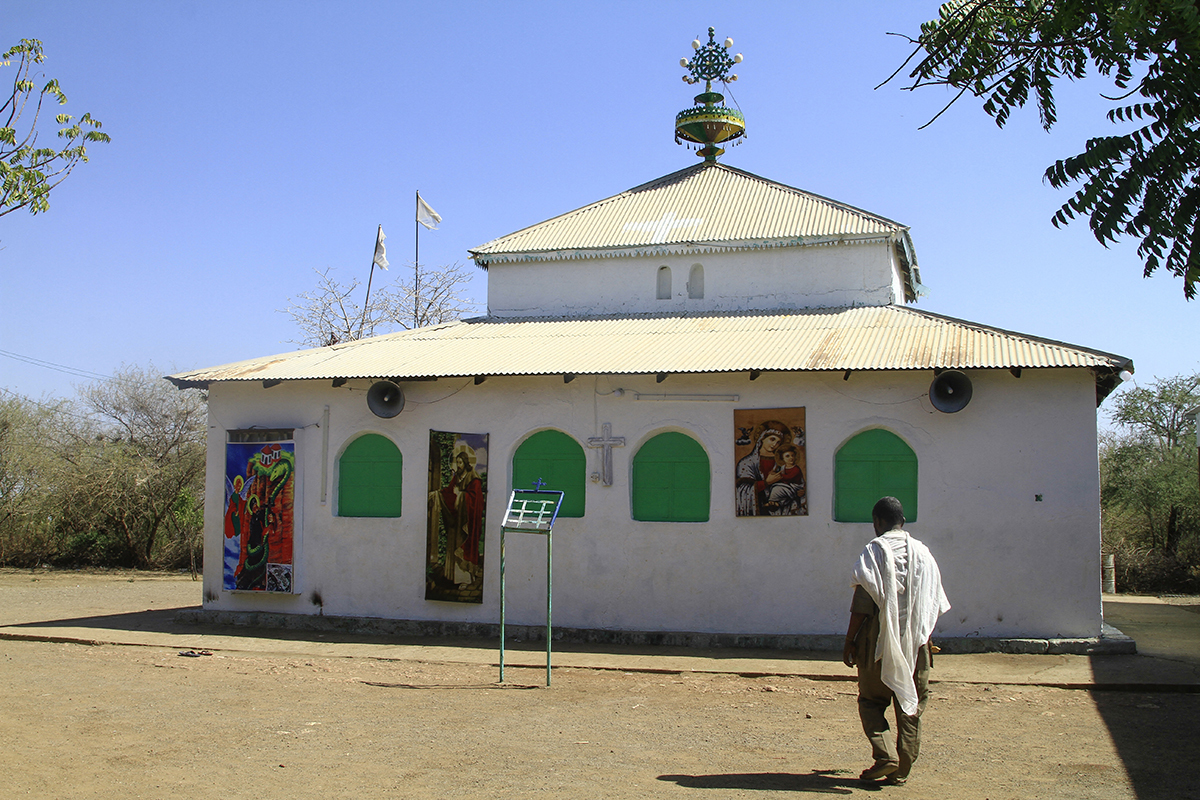 Since the war in Sudan began last April, over 150 churches have been damaged or destroyed, according to a report by the United States Commission on International Religious Freedom. The conflict between the Sudanese Armed Forces and the paramilitary Rapid Support Forces has claimed thousands of lives and devastated religious communities, with U.S. watchdogs warning that religious sites are being targeted, leaving a trail of destruction. Since the war in Sudan began last April, over 150 churches have been damaged or destroyed, according to a report by the United States Commission on International Religious Freedom. The conflict between the Sudanese Armed Forces and the paramilitary Rapid Support Forces has claimed thousands of lives and devastated religious communities, with U.S. watchdogs warning that religious sites are being targeted, leaving a trail of destruction. |
Study: 24 percent of clergy in North Carolina are still opposed to same-sex marriage.
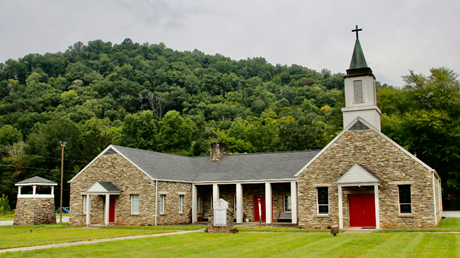 After the departure of thousands of traditionalist United Methodist churches from the denomination over the past five years, it might stand to reason that those congregations remaining in the fold are more progressive and open to ordination and marriage of people in same-sex relationships.But the picture is far more mixed.A new report from the Religion and Social Change Lab at Duke University that looked at disaffiliating clergy from North Carolina’s two United Methodist conferences or regions found that even after the departures, 24 percent of North Carolina clergy remaining in the denomination disagree with allowing LGBTQ people to get married or ordained within the denomination.“At least some amount of ambivalence over LGBTQ+ issues among UMC clergy is likely to persist for years to come,” the report concluded.After a four-year COVID-19 delay and the departure of about 7,600 churches—a loss of 25 percent of all its US congregations—the denomination is likely to reconsider the issue of human sexuality when it convenes its top legislative body April 23–May 3 in Charlotte, North Carolina.Given that the denomination is a worldwide body, with hundreds of delegates from Africa and the Philippines, areas far more conservative in their views of human sexuality, it’s unclear whether the measures stand a chance of passing, even as the US delegation is far more open to such changes.Overall, the Duke report finds that disaffiliating North Carolina clergy were much more politically and theologically conservative than those who chose to remain. Some 85 percent of clergy who left the denomination disagreed with the notion that “all religious leadership positions should be open to people ...Continue reading... After the departure of thousands of traditionalist United Methodist churches from the denomination over the past five years, it might stand to reason that those congregations remaining in the fold are more progressive and open to ordination and marriage of people in same-sex relationships.But the picture is far more mixed.A new report from the Religion and Social Change Lab at Duke University that looked at disaffiliating clergy from North Carolina’s two United Methodist conferences or regions found that even after the departures, 24 percent of North Carolina clergy remaining in the denomination disagree with allowing LGBTQ people to get married or ordained within the denomination.“At least some amount of ambivalence over LGBTQ+ issues among UMC clergy is likely to persist for years to come,” the report concluded.After a four-year COVID-19 delay and the departure of about 7,600 churches—a loss of 25 percent of all its US congregations—the denomination is likely to reconsider the issue of human sexuality when it convenes its top legislative body April 23–May 3 in Charlotte, North Carolina.Given that the denomination is a worldwide body, with hundreds of delegates from Africa and the Philippines, areas far more conservative in their views of human sexuality, it’s unclear whether the measures stand a chance of passing, even as the US delegation is far more open to such changes.Overall, the Duke report finds that disaffiliating North Carolina clergy were much more politically and theologically conservative than those who chose to remain. Some 85 percent of clergy who left the denomination disagreed with the notion that “all religious leadership positions should be open to people ...Continue reading... |
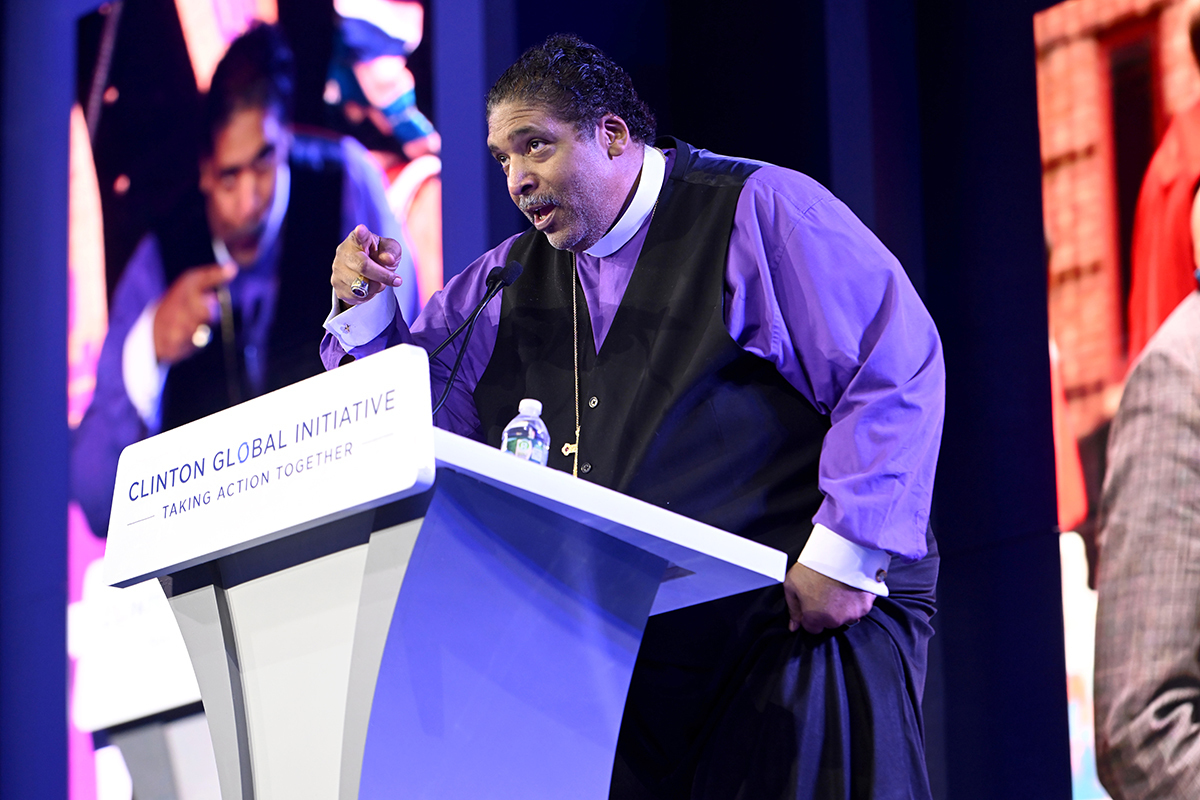 David Closson with the Family Research Council criticized the recent New Haven Declaration as the latest example of progressives trying to paint Bible-believing Christians as subversives to oust them from the public square. David Closson with the Family Research Council criticized the recent New Haven Declaration as the latest example of progressives trying to paint Bible-believing Christians as subversives to oust them from the public square. |
 A coalition of 15 Republican state attorneys general sent a letter to Bank of America earlier this week demanding answers to allegations that the financial behemoth has discriminated against customers based on political and religious viewpoints. The company has denied such allegations.? A coalition of 15 Republican state attorneys general sent a letter to Bank of America earlier this week demanding answers to allegations that the financial behemoth has discriminated against customers based on political and religious viewpoints. The company has denied such allegations.? |
Study: 24 percent of clergy in North Carolina are still opposed to same-sex marriage.
 After the departure of thousands of traditionalist United Methodist churches from the denomination over the past five years, it might stand to reason that those congregations remaining in the fold are more progressive and open to ordination and marriage of people in same-sex relationships.But the picture is far more mixed.A new report from the Religion and Social Change Lab at Duke University that looked at disaffiliating clergy from North Carolina’s two United Methodist conferences or regions found that even after the departures, 24 percent of North Carolina clergy remaining in the denomination disagree with allowing LGBTQ people to get married or ordained within the denomination.“At least some amount of ambivalence over LGBTQ+ issues among UMC clergy is likely to persist for years to come,” the report concluded.After a four-year COVID-19 delay and the departure of about 7,600 churches—a loss of 25 percent of all its US congregations—the denomination is likely to reconsider the issue of human sexuality when it convenes its top legislative body April 23–May 3 in Charlotte, North Carolina.Given that the denomination is a worldwide body, with hundreds of delegates from Africa and the Philippines, areas far more conservative in their views of human sexuality, it’s unclear whether the measures stand a chance of passing, even as the US delegation is far more open to such changes.Overall, the Duke report finds that disaffiliating North Carolina clergy were much more politically and theologically conservative than those who chose to remain. Some 85 percent of clergy who left the denomination disagreed with the notion that “all religious leadership positions should be open to people ...Continue reading... After the departure of thousands of traditionalist United Methodist churches from the denomination over the past five years, it might stand to reason that those congregations remaining in the fold are more progressive and open to ordination and marriage of people in same-sex relationships.But the picture is far more mixed.A new report from the Religion and Social Change Lab at Duke University that looked at disaffiliating clergy from North Carolina’s two United Methodist conferences or regions found that even after the departures, 24 percent of North Carolina clergy remaining in the denomination disagree with allowing LGBTQ people to get married or ordained within the denomination.“At least some amount of ambivalence over LGBTQ+ issues among UMC clergy is likely to persist for years to come,” the report concluded.After a four-year COVID-19 delay and the departure of about 7,600 churches—a loss of 25 percent of all its US congregations—the denomination is likely to reconsider the issue of human sexuality when it convenes its top legislative body April 23–May 3 in Charlotte, North Carolina.Given that the denomination is a worldwide body, with hundreds of delegates from Africa and the Philippines, areas far more conservative in their views of human sexuality, it’s unclear whether the measures stand a chance of passing, even as the US delegation is far more open to such changes.Overall, the Duke report finds that disaffiliating North Carolina clergy were much more politically and theologically conservative than those who chose to remain. Some 85 percent of clergy who left the denomination disagreed with the notion that “all religious leadership positions should be open to people ...Continue reading... |



 Links
Links  Articles
Articles  Blogs
Blogs  Videos
Videos  News
News  Colors
Colors 

 New links
New links

